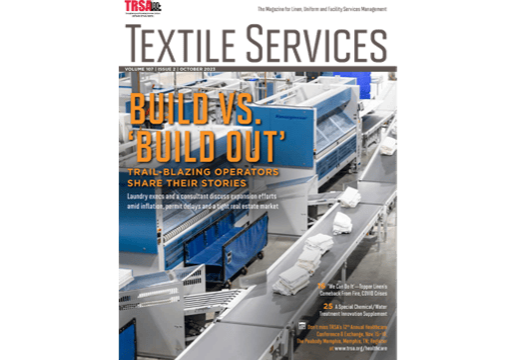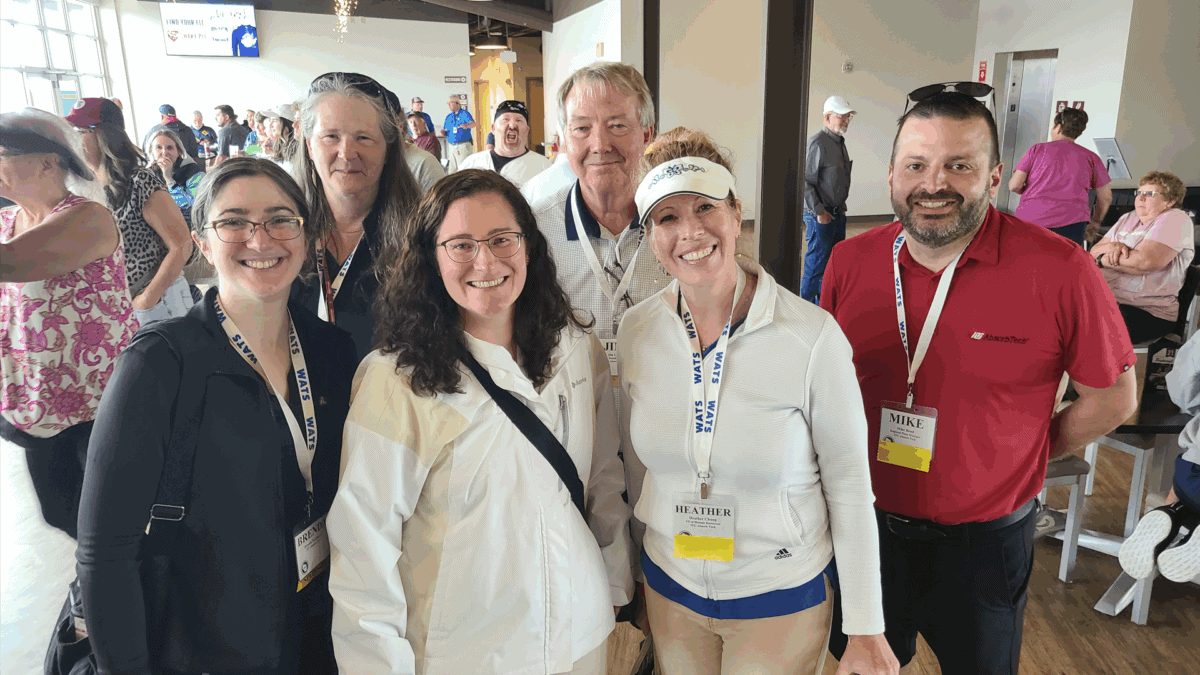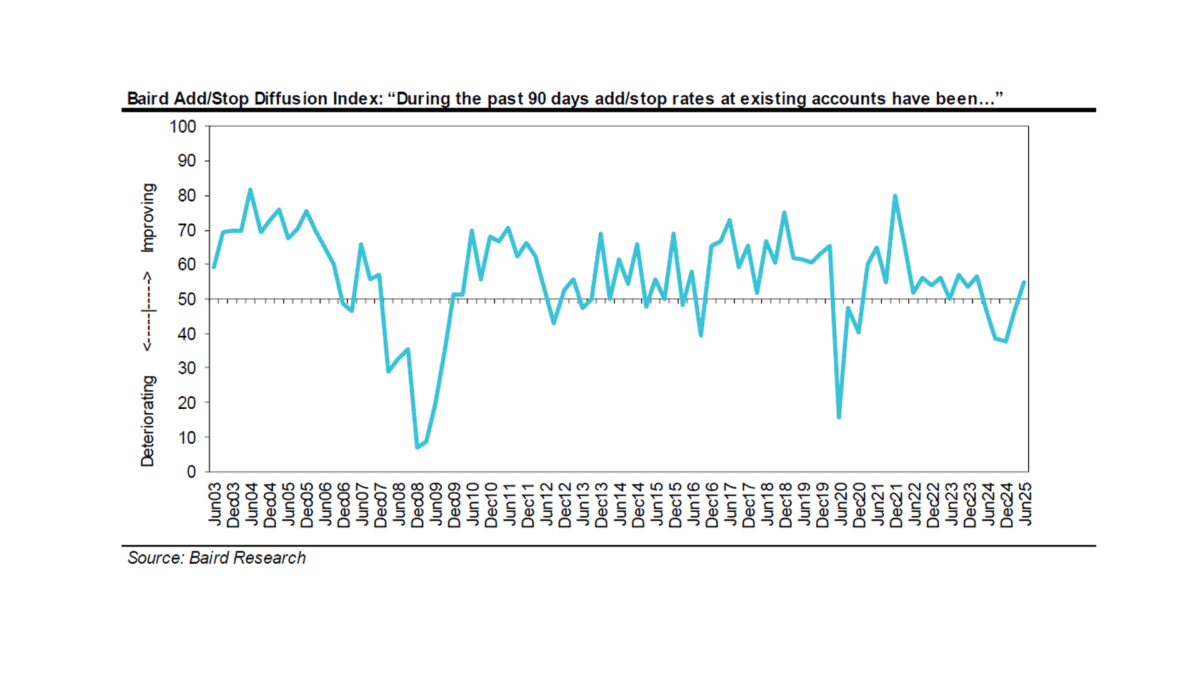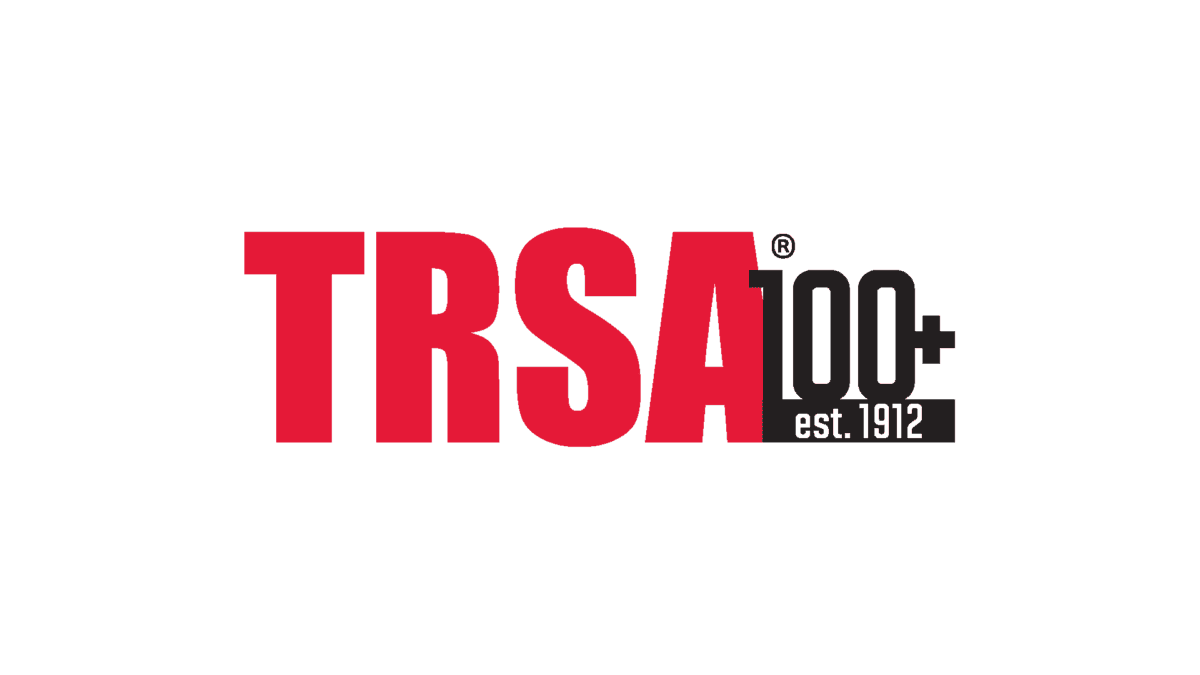For those readers that receive the Textile Services print magazine, we invite you to take a moment to review this month’s cover article, titled “Build Vs. Build Out: Trailblazing Operators Share their Stories.” In it, you’ll learn about four laundries that recently tackled major expansion projects.
For those that aren’t already getting the magazine, you can sign up for a free subscription below. We’ve also included a link below that will take you to an online PDF version of the aforementioned article. The “Build vs. Build Out” piece looks at various approaches that U.S. laundries have pursued and the challenges they’ve overcome. Summary excerpts follow. The companies cited in the article include:
- Arway Linen, Philadelphia
- Continental Linen Service (CLS), Kalamazoo, MI
- Division Laundry & Cleaners, San Antonio
- NOVO Health Services, Atlanta
Executives from all four companies reflected on revitalizing their services after nearly two years of COVID-19 shutdowns. In Arway’s case, the loss of revenue from its food-and-beverage (F&B) customer base threatened to stymie plans to relocate from a land-locked 35,000-square-foot (3,251-square-meter) building in a residential area to a newly reconditioned 80,000-square-foot (7,432-square-meter) building a few miles away. Arway partner Mario Stagliano says the deal was funded in part by the sale of the existing building. He’s psyched about the new location because the added capacity will enable him to grow Arway’s business. “I am confident that we can do more business in a 10-, 12-, 15-mile radius between acquiring smaller businesses and growing in new geography and doing more within the market that I have.”
For CLS, a mixed plant located in an industrial park, the opportunity to expand the plant’s existing footprint precluded the need to relocate the business. But trying to add on to its building while COVID was still a threat was complicated by a more basic issue: delays in permit approval to bring an 11,000 additional square feet (1,021 square meters) online as the economy began to recover. “The beginning stages of our project was frustrating because the site-planning process with the city of Kalamazoo took approximately five months,” said Sarah Wrubel, a co-owner and senior vice president of CLS. “Due to this delay, our entire project was pushed back.” Wrubel and her team persevered, and in December 2022 the company commemorated the completed plant expansion.
A third company, NOVO Health Services, had a similar experience with permitting delays. Their project in Miami Gardens, FL, featured an all-new plant, set up in a section of a much-larger building in an industrial park. Shane Ledbetter, senior VP of operations for NOVO, said part of the slowdown was the fact that permit applications had to go through two jurisdictions, Dade County and Miami Gardens. “The biggest challenge that we ran into, honestly, was the permitting side of it,” said Ledbetter, whose Atlanta-based company operates 15 facilities. “We were typically throughout the process, always ahead of the game in terms of having materials on site, physically being ready to move forward, and just waiting on the massive amounts of permitting that’s required in this market.”
NOVO had contracted with ARCO/Murray on the 80,000-square-foot (7,432-square-meter) plant. Ledbetter said they too were struck by the volume of paperwork the project required. Ed Kwasnick, ARCO/Murray’s director of business development, put the delays down to COVID-related staff shortages, including local officials who’d taken early retirement or were laid off and had found other jobs. “They were let go and now all of a sudden you have twice as much construction occurring; you don’t have the people to cover it,” he said. The new NOVO plant opened in January 2022.
Another way to pursue an expansion is to acquire new facilities through mergers. That was the course Division took when it sought to buy two former Angelica plants, including one in Dallas and another in Houston. This move – effectively tripling the San Antonio-based healthcare launderer’s capacity overnight – wasn’t a decision that Division President Pat Garcia took lightly. A key goal was to make the sure the plants – both housed in 1950s-vintage buildings – didn’t have environmental or structural problems that would nix the deal. Garcia and his team constantly asked themselves, “Do you know what it is you’re walking into?” After two-plus years of analysis, Division closed the sale with Angelica owner Kohlberg, Kravis Rogers (KKR) in February 2022. Click here to read the full article. Click here to subscribe to Textile Services.
Publish Date
October 12, 2023
Categories
Sign Up For Our Newsletter
Receive the latest updates on the linen, uniform and facility services industry from TRSA delivered straight to your inbox.








